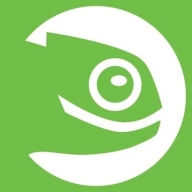

Oracle Linux and openSUSE Leap compete in the enterprise operating system market. Oracle Linux stands out for its robust support options and lower pricing, whereas openSUSE Leap is notable for its feature richness and performance.
Features: Oracle Linux users highlight its integrated support with Oracle products, strong security measures, and cost-effectiveness. openSUSE Leap users appreciate its extensive customization options, powerful software management tools, and comprehensive feature set.
Room for Improvement: Oracle Linux reviews suggest enhancement in documentation, broader application compatibility, and better troubleshooting resources. openSUSE Leap users note the need for better stability, improved community support, and more robust user support systems.
Ease of Deployment and Customer Service: Oracle Linux is praised for its straightforward deployment process, especially in Oracle-centric environments, and responsive customer service. openSUSE Leap, while flexible, can be more complex to deploy, though its community-driven support is beneficial.
Pricing and ROI: Oracle Linux is noted for its cost-effectiveness, offering substantial ROI through its pricing structure and integration with the Oracle ecosystem. openSUSE Leap, while potentially higher in initial setup costs, provides excellent ROI through its feature set and low long-term operational costs.

openSUSE Leap is a brand new way of building openSUSE and is new type of hybrid Linux distribution. Leap uses source from SUSE Linux Enterprise (SLE), which gives Leap a level of stability unmatched by other Linux distributions, and combines that with community developments to give users, developers and sysadmins the best stable Linux experience available. Contributor and enterprise efforts for Leap bridge a gap between matured packages and newer packages found in openSUSE’s other distribution Tumbleweed.
Oracle Linux is a stable, reliable, and scalable operating system primarily used for deploying and running Oracle databases. It is also suitable for various other functions, including managing operating systems and web servers, supporting traffic surveillance, and identity management.
Oracle Linux is highly valued for its stability, reliability, scalability, good technical support, and ease of use. It has helped organizations to achieve faster DNS queries, stable development environments, reduced vulnerability issues, good performance for Oracle applications, and improved ability to run test scenarios and parallel queries across massive databases.
Oracle Linux Features
Oracle Linux has many valuable key features. Some of the most useful ones include:
Oracle Linux Benefits
There are many benefits to implementing Oracle Linux. Some of the biggest advantages the solution offers include:
Reviews from Real Users
Oracle Linux stands out among its competitors for a number of reasons. Two major ones are its stability and scalability. PeerSpot users take note of the advantages of these features in their reviews:
One PeerSpot reviewer, an IT Manager, reports, “I find the virtualization the most valuable.” He adds, “Oracle Linux is the best Linux operating system that I have ever known. It is very stable and strong.”
An Enterprise Architect at a financial services firm writes of the solution, “You also don't have memory issues, especially when it is engineered with platforms like Exadata and Oracle Cluster. These give you the most throughput and performance.” He adds, “It is very scalable, especially on platforms like Oracle Cluster and Exadata.”
We monitor all Operating Systems (OS) for Business reviews to prevent fraudulent reviews and keep review quality high. We do not post reviews by company employees or direct competitors. We validate each review for authenticity via cross-reference with LinkedIn, and personal follow-up with the reviewer when necessary.